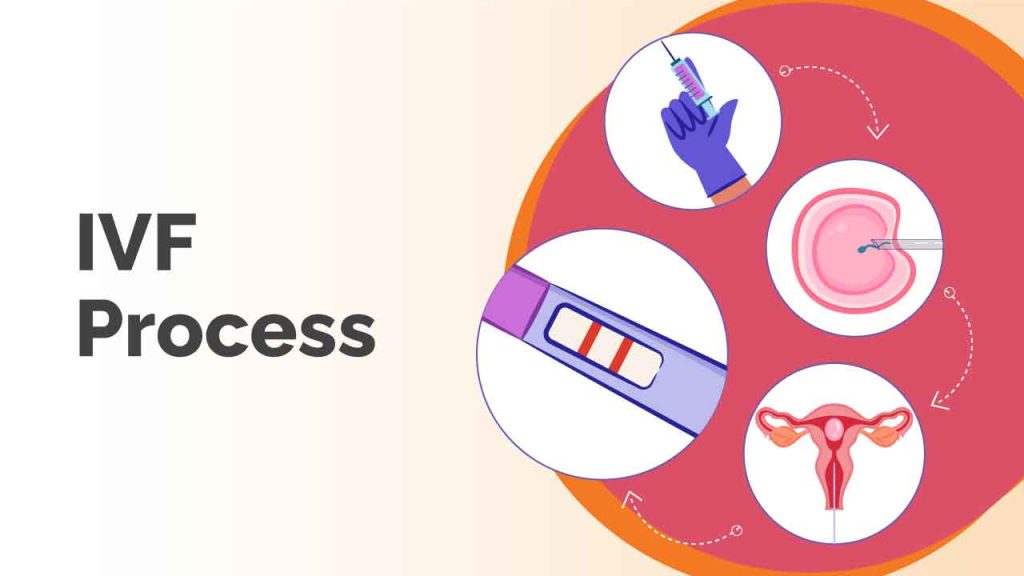- About Us
- Fertility
- IVF Centre in Bangalore
- IUI Treatment in Bangalore
- ICSI Treatment Centre in Bangalore
- FET Centre in Bangalore
- Colposcopy Center in Bangalore
- Egg freezing Center in Bangalore
- Gynaecologic Oncology
- Hysteroscopy
- Laparoscopy
- PESA
- TESA
- Sperm Freezing
- Ultrasonography
- Endometriosis Surgery in Bangalore
- Gynaecology
- Uterine Fibroid Treatment
- Ectopic Pregnancy
- High-Risk Pregnancy
- Laparoscopic Hysterectomy
- Azoospermia
- Dr. Shilpa G B
- Blog
- Contact us
If you and your partner are struggling with infertility, you may have encountered the terms IVF and “test-tube baby” and wondered about the differences.
This article will explore all the information you need about these two fertility treatments and which one may be right for you.
Major Difference of IVF vs. Test-Tube Baby


In vitro fertilization (IVF) is a procedure where a woman’s eggs are extracted from her ovaries and fertilized by sperm in a lab dish. Once the eggs have been fertilized, they are transferred to the uterus, where they can implant and develop into a fetus.
IVF is a highly effective infertility treatment that addresses various issues, including endometriosis, polycystic ovary syndrome (PCOS), male factor infertility, and unexplained infertility.
“Test-tube baby” is an older term used to describe IVF. The term refers to fertilizing eggs outside the body in a test tube, although this is not how the procedure is performed. Instead, the eggs are fertilized in a lab dish.
While “test-tube baby” was once used to describe assisted reproductive technology, it is now more commonly associated with IVF.
IVF Process Step By Step


IVF treatment involves several steps depending on individual factors and medical history. These include:
Ovarian Stimulation: Ovarian stimulation involves using medications like gonadotropins to stimulate the ovaries to produce multiple eggs. This increases the chances of success and can improve the chances of pregnancy.
- Oocyte Retrieval: Once the eggs have matured, they are retrieved using an ultrasound-guided needle. The eggs are then fertilized in a laboratory dish using sperm.
- Embryo Transfer: After fertilizing the eggs, they are allowed to develop in the lab for a few days. Once the embryos have developed, they are transferred to the uterus, where they can implant and develop.
What is the Success Rate of IVF?
IVF has a high success rate of 35-40% per cycle for women under 35. Success rates depend on several factors, including the woman’s age, the underlying cause of infertility, and the number of embryos transferred.
Is IVF Right for You?
IVF may be a good option for couples struggling with infertility due to various causes, including endometriosis, PCOS, male factor infertility, and unexplained infertility. If you have been trying to conceive for a while and have not succeeded, it may be time to consult a fertility specialist to determine if IVF is right for you.
To summarize, In vitro fertilization (IVF) and “test-tube baby” are used to describe fertility treatments that involve fertilizing an egg outside the body and then transferring it to the uterus to develop into a fetus. While “test-tube baby” is an older, less accurate term.
IVF is a highly effective infertility treatment. It is used to address various issues and has a high success rate.
Get in Touch with the Best IVF Clinic In Bangalore
We, Dr. Shilpa GB Fertility Clinic, are leading infertility and IVF clinics in Bangalore with a team of experienced fertility specialists. We aim to provide personalized and compassionate fertility care and treatment to our patients in a comfortable, warm, and inviting environment.
Schedule your consultation with Dr. Shilpa GB to discuss your fertility treatment options and start your journey toward a healthy pregnancy and a beautiful baby.


